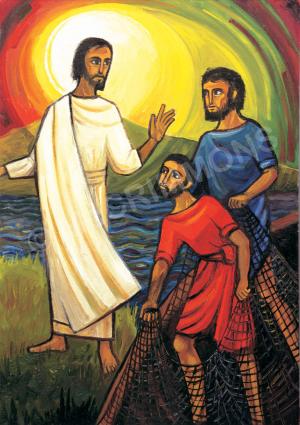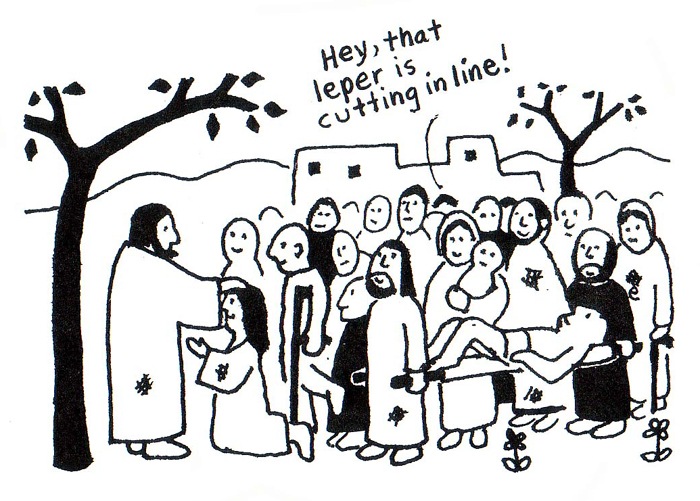Jesus knew that he was not long for this world, and needed
to have others who were committed to the teaching of the kingdom of God
to spread his word when he was gone. So
he decided to have a “school”, even as Elisha and John the Baptist both had,
over which he would be the teacher. He called them even as Elijah called
Elisha, telling the student to follow the teacher. From that point on, the disciple would go
wherever the teacher went, doing whatever he told them to. The school would
focus on him and memorize his teachings.
They would also look at his life and imitate it the best they
could. After they had memorized his
teachings, he would send them out to give the world his teachings and
life.
One
day, Jesus was passing by where John the Baptist was teaching. John, remembering the revelation he had heard
from God at Jesus’ baptism, declared: “There is the Lamb of God who takes away
the sin of the world!” At this point,
two of John’s students or “disciples” left John and started to follow
Jesus. One of these disciples was named
Andrew. Jesus turned to them and said,
“What are you doing?” They answered,
“Master, where are you staying?” He
answered, “Come and see.” So they stayed
with him. After hearing his teaching, he
went to his brother Simon and said, “We have found the Messiah!” Simon doubted that, but agreed to see Jesus.

Jesus was standing by the lakeside
in Capernum, where Simon lived. The
crowds were so many, that Jesus asked Simon, who was a fisherman, if he could
stand on his boat, a little ways from shore to teach them. Simon agreed, and Jesus taught. Jesus then turned to Simon and said, “Put out
your nets and you will catch quite a few fish.”
Simon replied, “ ‘Master’, we worked all night and caught nothing—can’t
you see that? I’m a fisherman, I know my
job.” Jesus replied, “Just do as I
say.” Simon replied, “As you
command.” Simon and his partners let
down their nets and a huge amount of fish was caught, so that another boat was
necessary to pull them all up.
After they returned to shore with the fish, Simon
knelt before Jesus and said, “I don’t deserve you to stay with me, Lord. I am a sinful man.” Jesus replied, “Don’t be afraid. From now on, you will fish for humans. Get up and follow me! From now on, you will not be called Simon,
but Rock.” Simon got up, left his boat
and nets and fish, and followed Jesus.
And so his name became Cephus (“rock” in Aramaic) or Peter (“rock” in
Greek).
Jesus then went to Peter’s partners, James and John,
who was caring for their fish with their Father, Zebedee. Jesus told them, “Follow me.” They then dropped their nets, left their father
and followed Jesus. None of them went
back to their nets for three years.
Jesus saw another disciple of John’s
named Phillip and said, “Follow me.”
Phillip did, and heard all that Jesus taught. Then he went to his friend, Nathaniel, who
was sitting under a fig tree. Phillip
said, “We have found the one of whom Moses and the prophets wrote about—Jesus
of Nazareth!” Nathaniel replied, “Can
anything good come out of Nazareth?” Phillip replied, “Come and see.”
Phillip then introduced Nathaniel to
Jesus and Jesus said immediately, “Ah!
You are a son of Jacob in whom there is no deceit!” Nathaniel said, “How can you know who I
am?” Jesus replied, “I saw you when
Phillip called you, when you were sitting under a fig tree.” Nathaniel was shocked and said, “You are the
Christ! You are the Son of God!” Jesus said, “You’re impressed because I saw
you under the fig tree? You will see
greater things than that. In fact, you
will see the Son of Man as the way to heaven, with the angels of God walking
going up and coming down upon him.”
Even so, Jesus gathered many
disciples, and soon he had a large crowd of followers, all competing for his
attention and memorizing every word he said.















